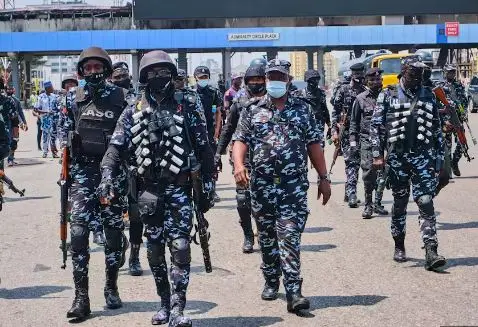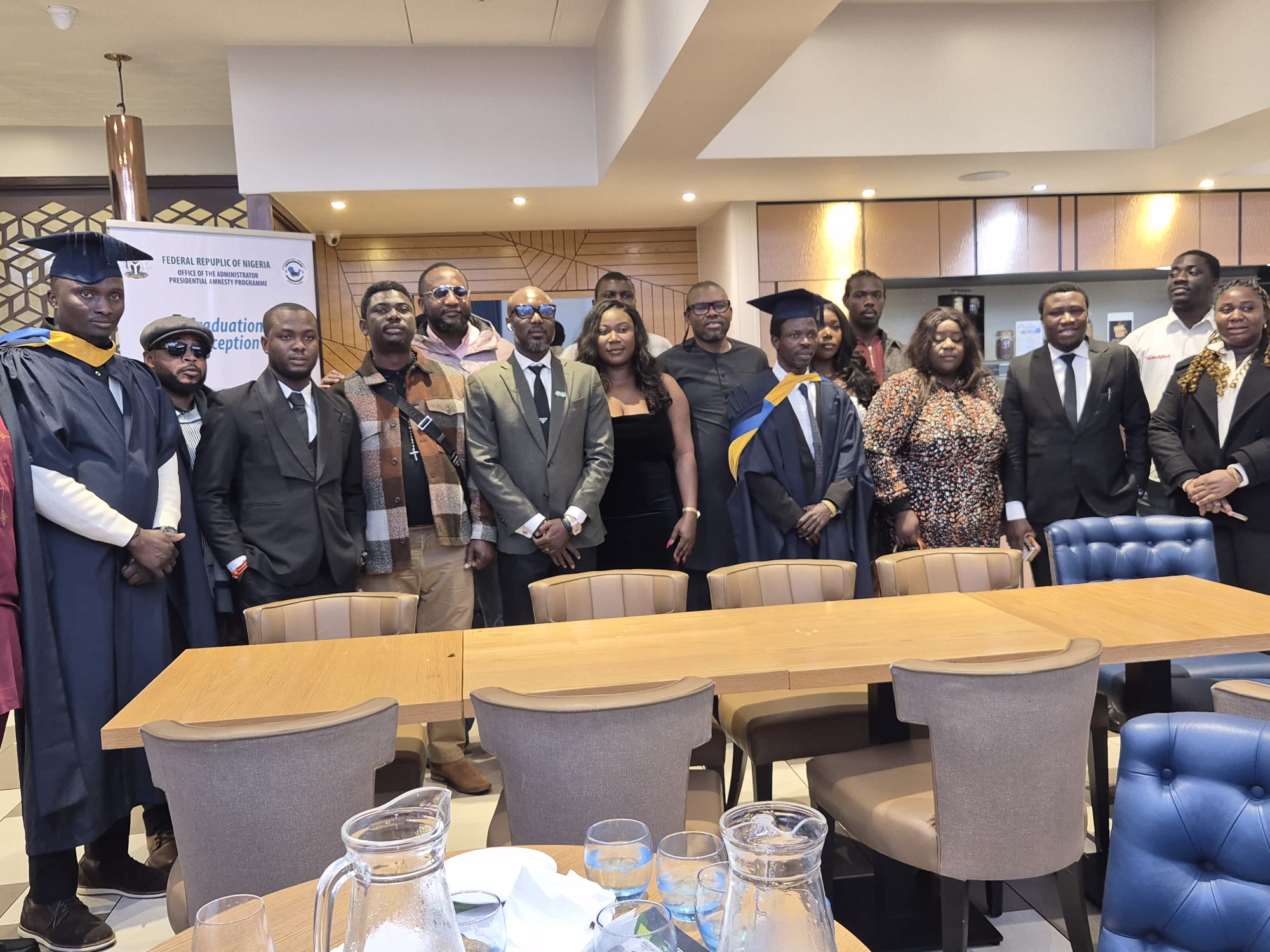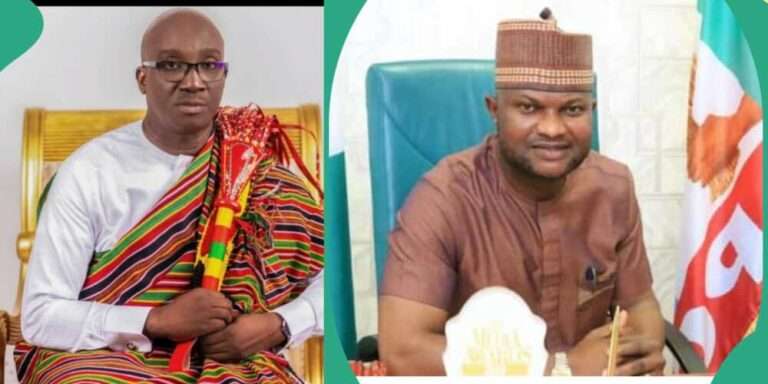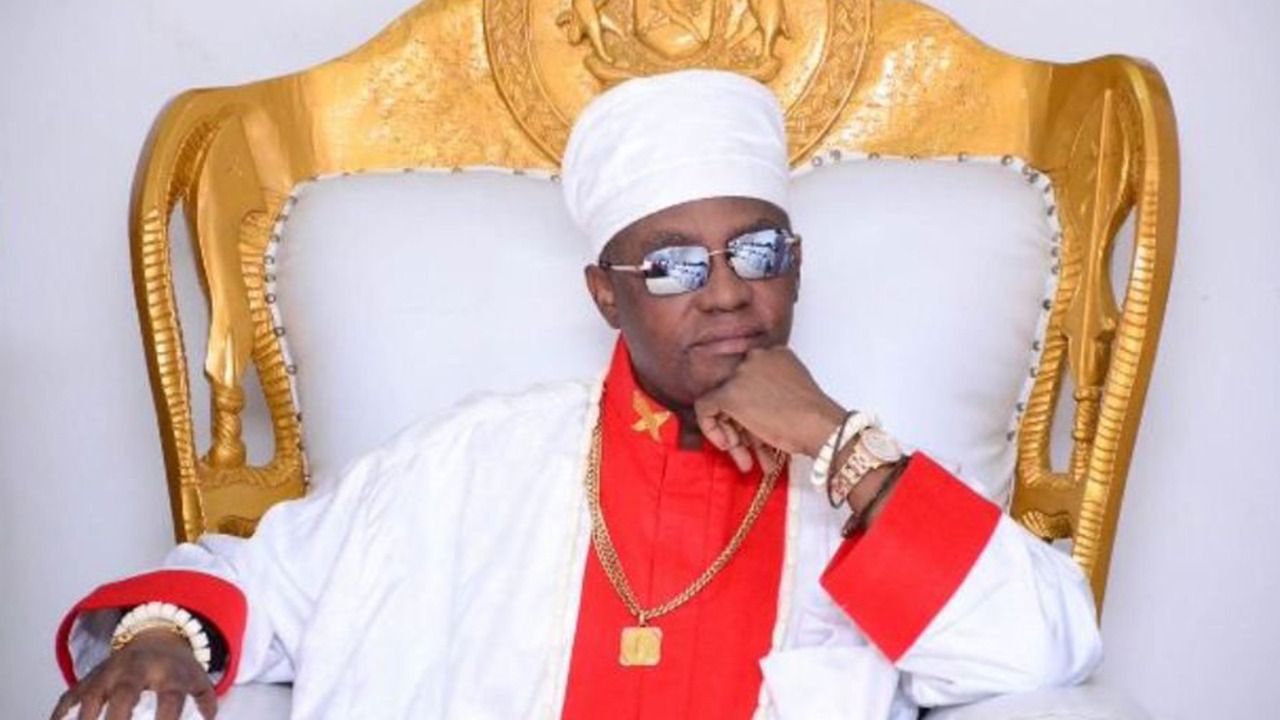News
Sanction Nigeria Over Attacks On Journalists, Protesters, SERAP Tells Commonwealth

Socio-Economic Rights and Accountability Project (SERAP) has sent an Urgent Appeal to Rt Hon Patricia Scotland QC, Secretary-General of the Commonwealth, urging her to “apply the Commonwealth Charter to hold the Nigerian authorities to account over reports of attacks on journalists covering the #EndHunger protests and peaceful protests in some parts of the country.”
SERAP urged Ms Scotland to “apply the Commonwealth Charter to press the Nigerian authorities to promptly, thoroughly, impartially, independently, transparently and effectively investigate reports of attacks on journalists covering the protests’ in Nigeria and on peaceful protesters.”
SERAP also urged Ms Scotland to “press the Nigerian authorities to publish the outcome of any investigation and to hold suspected perpetrators to account and ensure access to justice and effective remedies for the affected journalists and peaceful protesters for any violations of domestic law and international standards.”
SERAP urged Ms Scotland to “press the Nigerian authorities to uphold the rights of journalists to monitor and report on protests and ensure their safety, as well as ensure that journalists are not detained, threatened, attacked or restricted when covering noteworthy events of interest to the public, such as protests.”
In the Urgent Appeal dated 3 August 2024 and signed by SERAP deputy director Kolawole Oluwadare, the organisation said: “The targeting of journalists with lethal or less-lethal force for doing their work is prohibited under the Nigerian Constitution and international human rights law and contrary to best law enforcement standards.”
SERAP said, “Those violating such standards must be subject to accountability and disciplinary processes. The Commonwealth should take a clear stand to ensure accountability of institutions, media freedom and peaceful assembly in Nigeria.”
READ ALSO: BREAKING: Hoodlums Chase #EndBadGovernance Protesters From Lagos Park
The Urgent Appeal, copied to Mr António Guterres, Secretary-General of the United Nations; and Mr Volker Türk, UN High Commissioner for Human Rights, read in part: “The Nigerian authorities over the years have repeatedly demonstrated that it is not committed to protecting human rights.
“Respect for Commonwealth values is essential for citizens to trust Commonwealth institutions. The Commonwealth ought to take a strong stand for protection of human rights and media freedom in Nigeria, principles which are fundamental to the Commonwealth’s integrity, functioning and effectiveness of its institutions.”
“Nigerian authorities have the legal obligations to protect journalists reporting the news, including covering protests. Nigerian authorities also have an obligation to investigate and punish any violation that occurs within the framework of a public demonstration including attacks on the press.”
“The Commonwealth Charter and declarations recognise media freedom and the inalienable right of individuals to participate in democratic processes, in particular through peaceful exercise of their rights to freedom of expression and assembly, access to information, and media freedom, which apply both offline and online.”
“Any peaceful protesters and journalists detained solely because of their exercise of the right to peaceful assembly and covering the protests should be immediately and unconditionally released.”
“Law enforcement officers should only resort to force in ‘exceptional’ circumstances. Any use of force must only be the minimum amount necessary, targeted at specific individuals, and proportionate to the threat posed.”
READ ALSO: Day 2 Protest: Police Teargas Protesters, Journalist In Akwa Ibom
“The restrictions on the use of force including against journalists covering protests are even more important when security agents use lethal force such as firearms.”
“The Nigerian Constitution 1999 [as amended] and human rights treaties including the International Covenant on Civil and Political Rights and the African Charter on Human and Peoples’ Rights contain language protecting the rights to freedom of expression and access to information.”
“Nigerian authorities have the obligation to consistently promote a culture of accountability for law enforcement officials during protests. Any use of force must be investigated to determine whether the force was necessary and proportionate.”
“Nigerian authorities have an obligation to investigate effectively, impartially and in a timely manner any allegation or reasonable suspicion of unlawful use of force or other violations by law enforcement officials in the context of protests.”
“The presence of journalists in protests promotes transparency and accountability and can deter the commission of such violations and abuses. To assume such a role, journalists have the right to observe, and by extension monitor, protests and to record reactions to protests by officials or other actors.”
“Journalists play an essential watchdog role covering protests. Nigerian security agents have the duty to ensure the safety of journalists who are covering protests and to guarantee the right of the public to seek and receive information about these social mobilisations.”
READ ALSO: Journalists, Potesters Flee As Police Open Fire On Demostrators At MKO Abiola Stadium Abuja
“Nigerian authorities must afford journalists the highest degree of protection in order for them to perform their work freely. This obligation includes both the duty to avoid the use or threat of force against journalists and to protect journalists against third party violence.”
“The confiscation, seizure, and/or destruction of notes and visual or audio recording equipment of journalists without due process should be prohibited and punished.”
“Even if an assembly is declared unlawful or is dispersed, that does not terminate the right of journalists to monitor protests. Nigerian authorities have a legal obligation to adequately compensate journalists for any damaged equipment.”
“According to the UN Special Rapporteurs and Human Rights Committee, the right to peaceful assembly is an individual right, not a collective right, and must be treated as such. Any isolated act of violence by some participants must not be attributed to other participants in the assembly.”
“According to our information, security agents attacked journalists and some peaceful protesters in Abuja and other parts of the country. Security agents reportedly tear gassed and shot at journalists and peaceful protesters, chasing and shooting at fleeing journalists.”
“According to reports, bullets pierced a Premium Times reporter’s car conveying journalists out of the location at three different locations in Abuja. Journalists inside the car shot by security agents are those of The PUNCH, The Cable, Premium Times, and Peoples Gazette.”
READ ALSO: #EndBadGovernance: Protesters, Police Clash Averted In Rivers
“Also, a commuter vehicle’s glass was reportedly shattered with bullets. These journalists visibly identified themselves as press. Security agents also reportedly arrested a freelance journalist, Ayoola Babalola and some peaceful protesters in Abuja, the Federal Capital Territory, on Saturday.”
“Over 50 journalists have been reportedly arrested simply for covering the protests.” Journalist Abdulqudus Ogundapo reportedly said he was scared for his safety when caught in the gunfire.”
“On Thursday, some law enforcement officials reportedly abducted and carted away the camera and phones of The PUNCH photojournalist, Kayode Jaiyeola. On Friday in the Federal Capital Territory, police officers reportedly fired teargas at journalists covering the protest at the Berger roundabout.”
“In Borno State, nine Radio Ndarason Internationale staff members were reportedly arrested by security officials in Maiduguri as they were covering the protests.”
News
Otuaro Pledges To Expand PAP Scholarship As Beneficiaries Bag Master’s Degrees From UK Varsities

Administrator of the Presidential Amnesty Programme (PAP), Dr. Dennis Otuaro, has expressed his unwavering commitment to expanding the PAP scholarship scheme.
The PAP boss made the pledge at a graduation reception for nine students who were awarded foreign post-graduate scholarships by PAP in universities in the United Kingdom.
A statement by his Special Assistant on Media, Mr Igoniko Oduma, said the successful scholars are the first graduates in the offshore post-graduate scholarship deployment to UK institutions by the PAP Administrator, Dr Dennis Otuaro, for the 2024-2025 academic session.
According to the statement, they graduated from the Anglia Ruskin University, University of Dundee and The University of Law with master’s degrees in cyber security, data science and engineering, law, construction and civil engineering management, project management, and ICT.
READ ALSO:PAP Seeks NCC Partnership On Beneficiaries’ Empowerment
Otuaro disclosed in the statement that 711 undergraduate and post-graduate scholarship beneficiaries are expected to graduate from universities within Nigeria this year.
According to Otuaro, the expansion of the scholarship scheme is aimed at creating more opportunities for indigent students of Niger Delta extraction to access higher education with a view to closing the human capital development gap in the region.
Otuaro said it was for this reason he deployed 3800 beneficiaries in-country in the 2024-2025 academic year, and increased the figure to 3900 in the 2025-2026 academic session with 200 for foreign scholarships.
He said under his administration, 7700 students have been so far deployed for the PAP scholarship scheme within Nigeria in less than two years.
READ ALSO:Edo Govt, PDP Biker Over PRESCO’s Statutory Right Of Occupancy
According to him, aince he took over, he has deployed 162 students from the region for post-graduate programmes in targeted disciplines in the UK universities.
According to him, this is in conformity with the Renewed Hope Agenda of President Bola Tinubu for the Niger Delta, who has given unprecedented support to the PAP because of his sincere love for the area.
The PAP boss said, “Our decision aligns with the Renewed Hope Agenda of His Excellency, President Bola Ahmed Tinubu GCFR for the Niger Delta. We will continue to create more higher educational opportunities for students from indigent backgrounds in our region.
“We are also deepening the implementation of the programme’s mandate in informal education and other areas for the sustainable peace and socio-economic advancement of the region.”
Otuaro, who congratulated the master’s graduates on their successful graduation, stressed that they completed their programmes in record time which shows the seriousness they had put into their studies.
He said they have justified the Federal Government’s investment in their education with their successful graduation, and urged other beneficiaries not to be distracted in their academic pursuits.
“We congratulate these scholars on their successful graduation. It shows that they took their studies seriously. That is what we demand of every scholarship beneficiary, whether at the undergraduate or post-graduate level”, Otuaro said.
News
Okpebholo Declares Edo Business-friendly

Governor Monday Okpebholo of Edo State on Friday declared the state as Edo business-friendly environment and ready to welcome any investor to the state.
The governor spoke when he played host to members of the South – South Coalition of the Chambers of Commerce, Industry, Mines and Agriculture (COSSCIMA).
The governor, who received his guests through the Office of the Deputy Governor, Hon. Dennis Idahosa, said his administration has provided the enabling environment for investors to promote their businesses.
READ ALSO:Oshiomhole Criticises Obaseki’s Govt, Scores Okpehbolo High
The governor commended the COSSCIMA for deeming it fit to choose the stata as host to the annual general meeting of the body.
“It is not surprising that you pick the state as a choice because we have provided the enabling environment by investing in infrastructure and reducing insecurity to the barest minimum.
“So, we assured potential investors that the state is safe, secured for all to come and invest,” he stated.
Also speaking, Hon. Omoh Anabor, Commissioner for Business, Trade, and Investment, said that the state was ready to partner any firm.
READ ALSO:JUST IN: Okpehbolo Appoints New VC For AAU
Earlier in his address, President of COSSCIMA, Hon. Indutimi komonibo said, “The Edo State Governor is doing a great job.
He, however, pointed out that nonetheless reiterated, “No government can succeed without partnering with the organized private sector.”
“We seek collaboration wherever we go. We carry the emblem of national development. Investors are looking for where their business will thrive. We understand the language of the business.”
He stated that COSSCIMA membership cut across the six Chambers of Commerce that make up the South-South states of the federation.
News
Oba Of Benin Suspends Priest, Reaffirms Appointment Of Okao

The Oba of Benin, Oba Ewuare the second, has suspended the traditional priest of Uniamen Village, Chief Sunday Sidney Enoma as the Ohen-Ovia of Unuamen for violating the custom and traditional of Benin.
The Monarch reaffirmed Chief Kingsley Igbinosa as the Okao (traditional head) of Unuamen Village, in Ovia North East local Government Area of Edo State.
In a statement by his Chief Press Secretary, Osaigbovo Iguobaro, the Oba described the claim by the suspended Ohen of Unuamen that he is the one who usually installs the Okao of the village as baseless, unfounded and abominable.
The Benin Monarch noted that all Chieftaincy titles in Benin kingdom are conferred by the Oba.

 News5 days ago
News5 days agoBREAKING: Ex-CDS Musa meets Tinubu At Aso Villa

 News5 days ago
News5 days agoMOWAA: Why I Will Not Appear Before Edo Assembly Panel — Obaseki

 Metro4 days ago
Metro4 days agoOsun Monarch’s Burial Rites Turn Bloody

 Entertainment5 days ago
Entertainment5 days agoFacebook, Instagram Suspend Idris Abdulkareem’s Accounts After New Song, Open Letter To Donald Trump

 Sports4 days ago
Sports4 days agoDavido Reacts As Gov Adeleke Dumps PDP

 Entertainment4 days ago
Entertainment4 days ago2face, Natasha Fight Dirty On Instagram Live Amid Singer’s Alleged Arrest In UK

 News4 days ago
News4 days agoJUST IN: Defence Minister, Badaru Mohammed Resigns

 Metro4 days ago
Metro4 days agoPHOTOS: Borno Woman Recovers N23m Gold Buried During Boko Haram Escape

 News5 days ago
News5 days agoFULL LIST: Approved Physical Verification Centres For CDCFIB 2025 Screening

 News4 days ago
News4 days agoBREAKING: Tinubu Nominates New Defence Minister






























